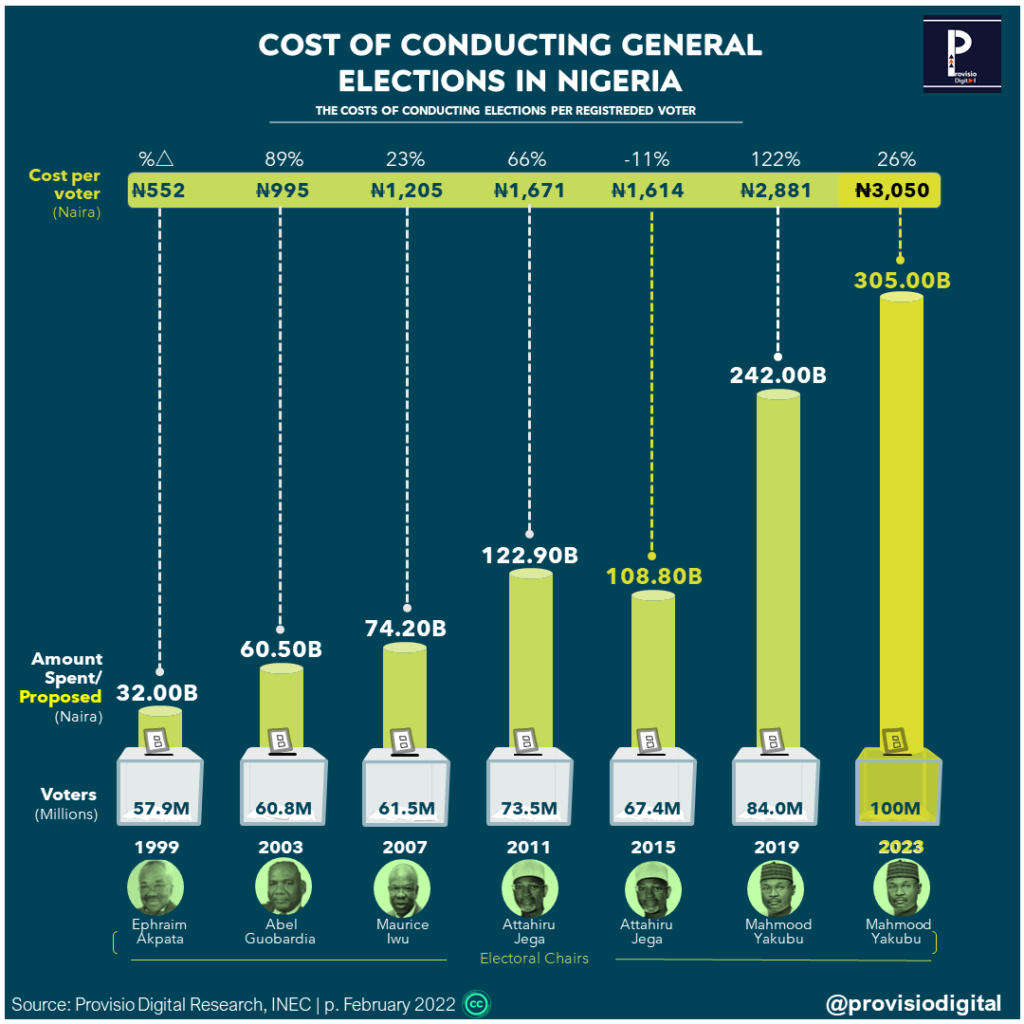Why We Looked Into This »?👀
|
The Costs, Polling Units and Voters’ Register
- Over the years, Nigeria has faced issues relating to the voters register; the 2006 voters’ register for instance, had alien names like Hillary Clinton, Mike Tyson, Michael Jordan among others – this led to updates of the voters’ register (which cost money).
- Since 119,973 polling units were formed in 1996 by the defunct National Electoral Commission of Nigeria (NECON), expansion has not matched population growth.
- The 119,973 polling units were planned to serve about 50 million registered voters.
- Mahmood Yakubu, the current INEC Chair, called for the increase in polling units structure in 2021.

Infographic showing the costs of elections in Nigeria since 1999 (Provisio Digital)
- In 2015, former INEC Chair, Attahiru Jega said,
“I think that in future, not 2015, elections should be held in same day in line with global practices and Nigeria should move in that direction in the future. Staggered elections are not cost effective and it is not cost efficient and it is expensive”.
Changes in Cost of Elections
-
- Since 1999, the cost of conducting elections has increased almost ten times.
- In 2011, INEC stated that it captured the data of 73.5 million eligible voters in just three weeks. Similarly, election costs have increased due to staggered elections.
- INEC estimates that there will be about 100 million voters in 2023 and has proposed 305 billion naira for the 2023 elections. This is an average of 3,050 naira per registered voter.
- A percentage change in the costs spent in spending elections reveal a -11% drop in costs while in 2019, there was a 122% increase in costs.
- Staggered elections, reruns, court cases, voters’ register update, inflation and production of certain election materials outside Nigeria could account for increase in these costs (direct and indirect costs).

This work is licensed under a Creative Commons Attribution-NonCommercial 4.0 International License.


